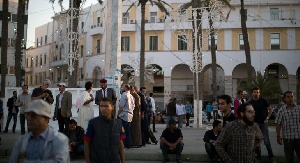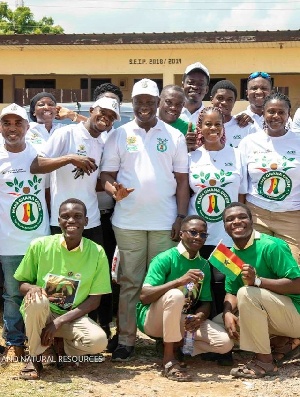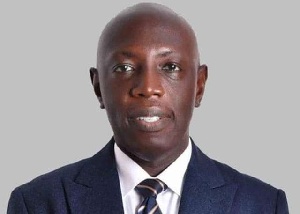Africa News of Friday, 16 May 2025
Source: www.ghanawebbers.com
Libya's Fragile Peace Tested Again As New Clashes Roil Tripoli
A fragile calm has returned to Tripoli after recent violence. This week, clashes left parts of the city in ruins and claimed civilian lives. Concerns about Libya's political and security stability have increased.
Fighting erupted earlier this week across several districts. Reports suggest it was triggered by the killing of a militia leader. Heavy weaponry was used in densely populated areas, forcing many families to flee. Local hospitals are under severe strain due to the violence.
UN Secretary-General António Guterres urged all parties to uphold the ceasefire announced on Wednesday. His spokesperson described the rapid escalation as alarming. Armed groups from outside the city joined the fighting, using heavy artillery in populated neighborhoods. The Secretary-General reminded all parties to protect civilians and engage in serious dialogue.
The UN Support Mission in Libya (UNSMIL) issued warnings throughout the week. They called the situation "deeply alarming" and demanded an "immediate, unconditional ceasefire." Attacking civilian infrastructure and harming civilians may constitute international crimes, they stated.
Nearly 15 years after Muammar Gaddafi's fall, Libya remains divided. The internationally recognized Government of National Unity (GNU) is based in Tripoli, while the Government of National Stability (GNS) operates from Benghazi. Competition over oil wealth complicates matters further. Despite producing over a million barrels daily, living conditions for ordinary Libyans have not improved.
In New York, the International Criminal Court (ICC) Prosecutor announced a new phase in their investigation into alleged war crimes in Libya. Increased cooperation from Libyan authorities has facilitated this progress.
During a briefing to the UN Security Council, ICC Prosecutor Karim Khan highlighted recent developments. He mentioned Osama Elmasry Najim's arrest and his controversial return to Libya after being charged with war crimes linked to abuses at Metiga Prison.
Khan expressed concern over Najim's return, stating it disappointed victims seeking justice. However, he noted that Najim’s arrest warrant sent shockwaves through Libyan militias, indicating growing awareness of accountability under law.
Khan confirmed that more arrest warrants are being pursued as part of ongoing investigations with international partners like the UK's National Crime Agency.
"There is a black box of suffering in Libya," Khan told ambassadors during his briefing. He expressed determination to uncover these issues.
In another significant development, Libya submitted a declaration granting ICC jurisdiction over crimes committed on its soil from 2011 to 2027. Khan described this as a "new chapter" for accountability efforts and expects investigations to conclude by early 2026.
The International Criminal Court (ICC) is an independent judicial body established under the Rome Statute adopted in 1998 and effective since 2002. Although not part of the United Nations, it collaborates closely with it on various matters related to international justice.











